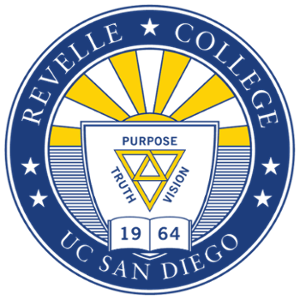-
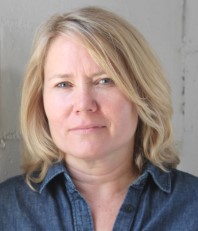 Professor, Visual Arts
Professor, Visual Arts
-
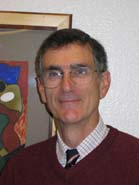
Professor Emeritus, Department of Economics
Dr. Attiyeh received his Ph.D. in Economics from Yale University.
-
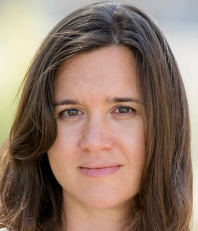
Brenda Bloodgood
Associate Professor in the Division of Biological Sciences, Neurobiology Section at the UC San Diego
Kavli Faculty Fellow at the Kavli Institute for Brain and MindResearch in the Bloodgood lab aims to understand how the function of neural circuits changes in response to an animal’s interaction with its environment. She is approaching this question by investigating how activity-dependent gene expression regulates the connectivity between excitatory and inhibitory neurons in the hippocampal microcircuit with the goal of understanding how these processes relate to animal behavior and disease.
Dr. Bloodgood earned her B.Sc. in Animal Physiology and Neuroscience from UC San Diego in 2001 and her Ph.D. from the Department of Neurobiology at Harvard Medical School in 2006. She continued at Harvard Medical School as a postdoctoral fellow before establishing her own lab in 2012. She is a Searle and Pew Biomedical Scholar, the recipient of a NIH Director’s New Innovator Award.
-
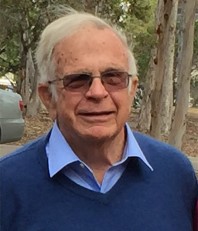
F. Thomas Bond
Revelle College Provost Emeritus (1983-2003)
Professor Emeritus, Department of Chemistry
Dr. Bond, received a B.S. degree in chemistry from the Massachusetts Institute of Technology in 1958 and a Ph.D. in organic chemistry from Berkeley in 1962. He served on the faculty at Oregon State University for five years before moving to San Diego.
Dr. Bond was selected as acting provost of Revelle College in 1983, subsequently serving as provost for 20 years. He was named to receive the Revelle College Excellence in Teaching Award in 1971 and 1973 and received the UCSD Excellence in Teaching Award from the Chancellor's Associates in 1979. In presenting the award, the Associates cited Bond's "extraordinary effort outside the classroom that includes careful preparation, good organization, reflection on aims and goals, fairness in grading, and a genuine concern for the well-being of his students."
-
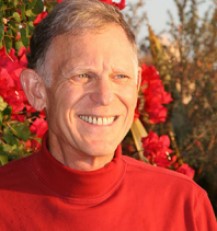
Professor Emeritus, Department of History
-
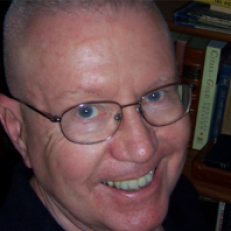
Distinguished Professor, Literatures in English
Director, Revelle College Humanities Writing Program
"In academic life one does many things at the same time, and one research or teaching interest may develop into many others. I have been fortunate to have found an audience for a great variety of work, little of which I ever predicted I would do. One thing led to another. I plan to keep on in this way, in the hope that what I write will continue to be read."
-
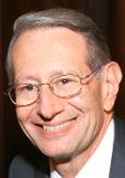 Distinguished Professor of Chemistry and Biochemistry Emeritus
Distinguished Professor of Chemistry and Biochemistry Emeritus
Distinguished Professor of Pharmacology Emeritus -
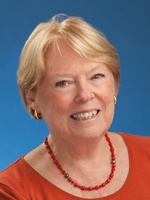
Professor Emeritus, Division of Biological Sciences
Dr. French's research interests focus at the intersection between the study of how a nervous system is assembled during embryonic development and how activity in the nervous system allows an animal to produce behavior appropriate to its circumstances. She studies these questions in an annelid worm--the medicinal leech, Hirudo medicinalis--because it has a relatively simple nervous system, yet it produces complex behaviors. In addition, leech embryos are quite robust, allowing us to do a variety of experiments.
-
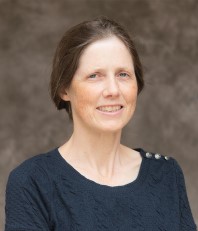
Professor of Physical Oceanography at Scripps Institution of Oceanography
Prof. Gille's research focuses on the ocean's role in climate. Her research group makes use of satellite observations and autonomous instruments to study processes across the planet, including in the Southern Ocean and in the California Current. Professor Gille earned a BS in physics at Yale University and a PhD in physical oceanography from the MIT-Woods Hole Oceanographic Institution Joint Program. She was an assistant professor at UC Irvine from 1998-2000 and joined the UCSD faculty in 2000.
-
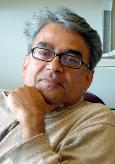
Professor of Chemistry and Biochemistry
Dr. Ghosh received his Ph.D. at Albert Einstein University (1991) in Biochemistry. He is interested in the interdisciplinary area of biophysics, macromolecular structure, and cellular biochemistry.
His research focuses primarily on the detailed mechanisms of signaling pathways that lead to the regulation of gene expression by nuclear factor °B(NF-°B). His team initiated a second project that aims to understand mRNA processing and transport. The foundation of his research rests upon high resolution x-ray structures of proteins and protein complexes. Hypotheses derived from these three dimensional structures are tested through biochemical and biological experiments to provide greater functional understanding of these important regulatory processes.
Dr. Ghosh served in a governance capacity on the Revelle College Faculty Executive Committee for several years and is a Faculty Mentor in the Revelle Mentorship Program.
-
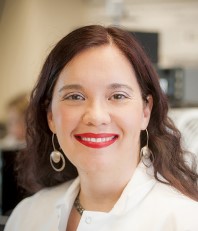
Prof. Graeve joined the University of California, San Diego, in 2012, and is currently Professor in the Department of Mechanical and Aerospace Engineering, Director of the CaliBaja Center for Resilient Materials and Systems, and Faculty Director of the IDEA Engineering Student Center. Previously, she was an Associate Professor at Alfred University (2008-2012) and an Assistant Professor at the University of Nevada, Reno (2002-2008). Prof. Graeve holds a Ph.D. in Materials Science and Engineering from the University of California, Davis, and a Bachelor’s degree in Structural Engineering from the University of California, San Diego. Her area of research focuses on the design and processing of new materials for extreme environments, including extremes of temperature, pressure, and radiation.
Prof. Graeve has been involved in many activities related to the recruitment and retention of women and Hispanic students in science and engineering and has received many prestigious awards. More recently, she has been inducted into the Tijuana Walk of Fame (2014) and to the Mexican Academy of Engineering (2016), and has been named Fellow of the American Ceramic Society (2017). In addition, Forbes Magazine named her one of the 100 Most Powerful Women of Mexico (2017).
In June 2022, Professor Graeve was appointed Director of the Graduate Program in Materials Science and Engineering at UC San Diego. This university-wide program includes nearly 100 faculty from across campus. It offers both Master's and Ph.D. degrees and serves more than 200 students per year. It is the largest graduate program of its kind in the UC System and one of the largest in the nation.
-
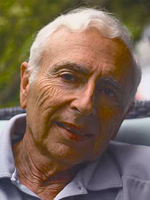
Professor Emeritus, Division of Biological Sciences
Cell and Developmental Biology
Dr. Green, came to the campus in 1963. Academically, he considers his investigation into the process of cancer causation, leading to the discovery of polyoma and SV40 viral chromatin in 1969, his most important contribution to molecular biology. But looking back on his career, he considers his efforts to empower students in achieving their dreams among his most important and deeply satisfying contribution to the university.
Dr. Green happily spends hours mentoring first-generation students from low-income families as part of the Emeriti Mentor Program that he created in 2006. The program has about 50 retired UC San Diego professors helping nearly 100 freshmen and sophomores, providing career guidance and an understanding ear.
Dr. Green is a mentor to several current Revelle students in the Revelle Mentorship Program.
-
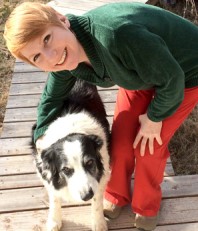
Professor of Psychology
Dr. Harris received her Ph.D. in Psychology from the University of California San Diego in 1998. Her primary research interest is in human emotion, with a focus on social emotions in interpersonal contexts (jealousy, envy, embarrassment, shame, and humor) and on the complex relationship between emotion and the cognitive process.
Dr. Harris has served in a governance capacity on the Revelle College Faculty Executive Committee and as Chair of the Faculty for nearly 10 years. She is a mentor in the Revelle College Mentorship Program.
-
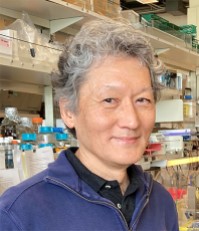 Elected in 2022 to the U.S. National Academy of Sciences, Professor Kadonaga is the Amylin Endowed Chair in Lifesciences Education and Research in the School of Biological Sciences at UC San Diego, Section of Molecular Biology. Professor Kaonaga was an undergraduate in chemistry at MIT, where he performed undergraduate research with Rick L. Danheiser and received both the Alpha Chi Sigma Prize and the American Institute of Chemists Certificate in 1980. He carried out his graduate studies (1980-84) with Jeremy R. Knowles in the Department of Chemistry at Harvard University, where he was a DuPont Fellow. Jim was a postdoctoral associate (1984-88) with Robert Tjian at UC Berkeley as a Fellow of the Miller Institute for Basic Research in Science, American Cancer Society California Division, and Lucille P. Markey Charitable Trust. He joined the faculty of UCSD in 1988 and was one of 15 scientists to be named as a Presidential Faculty Fellow by President George H.W. Bush in 1992. In 1994, he was elected to Fellow of the American Association for the Advancement of Science, and in 1995, he was elected to Fellow of the American Academy of Microbiology. He served as the Chair of the Section of Molecular Biology from 2003 to 2007. In 2012, he received the UCSD Chancellor's Associates Award for Excellence in Research in Science and Engineering. In 2017, he was elected to the American Academy of Arts & Sciences. In 2020, he was elected to Revelle College Faculty Fellow at UCSD.
Elected in 2022 to the U.S. National Academy of Sciences, Professor Kadonaga is the Amylin Endowed Chair in Lifesciences Education and Research in the School of Biological Sciences at UC San Diego, Section of Molecular Biology. Professor Kaonaga was an undergraduate in chemistry at MIT, where he performed undergraduate research with Rick L. Danheiser and received both the Alpha Chi Sigma Prize and the American Institute of Chemists Certificate in 1980. He carried out his graduate studies (1980-84) with Jeremy R. Knowles in the Department of Chemistry at Harvard University, where he was a DuPont Fellow. Jim was a postdoctoral associate (1984-88) with Robert Tjian at UC Berkeley as a Fellow of the Miller Institute for Basic Research in Science, American Cancer Society California Division, and Lucille P. Markey Charitable Trust. He joined the faculty of UCSD in 1988 and was one of 15 scientists to be named as a Presidential Faculty Fellow by President George H.W. Bush in 1992. In 1994, he was elected to Fellow of the American Association for the Advancement of Science, and in 1995, he was elected to Fellow of the American Academy of Microbiology. He served as the Chair of the Section of Molecular Biology from 2003 to 2007. In 2012, he received the UCSD Chancellor's Associates Award for Excellence in Research in Science and Engineering. In 2017, he was elected to the American Academy of Arts & Sciences. In 2020, he was elected to Revelle College Faculty Fellow at UCSD.
-
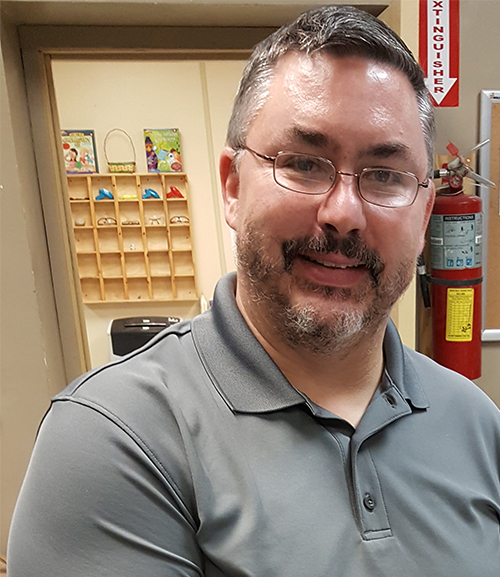 Dr. Leigh is an Assistant Teaching Professor in the School of Biological Sciences, Department of Chemistry and Biochemistry. He earned his PhD in Chemistry at the California Institute of Technology in 2008 after receiving his Masters (2000) in Chemistry and Bachelor of Science degree (1999) in Biochemistry, both at Portland State University. During the period of 2015 - 2018, Dr. Leigh was the Physical Scienctist for the Defense Forensic Science Center, Forencis Exploitation Directorate. He worked as the Intelligence Community Postdoctoral Fellow at UC San Diego in 2011 - 2014. Dr. Leigh's primary areas of research include Chemical education, interdisciplinary interests, materials, physical organicc, and biophysics.
Dr. Leigh is an Assistant Teaching Professor in the School of Biological Sciences, Department of Chemistry and Biochemistry. He earned his PhD in Chemistry at the California Institute of Technology in 2008 after receiving his Masters (2000) in Chemistry and Bachelor of Science degree (1999) in Biochemistry, both at Portland State University. During the period of 2015 - 2018, Dr. Leigh was the Physical Scienctist for the Defense Forensic Science Center, Forencis Exploitation Directorate. He worked as the Intelligence Community Postdoctoral Fellow at UC San Diego in 2011 - 2014. Dr. Leigh's primary areas of research include Chemical education, interdisciplinary interests, materials, physical organicc, and biophysics.
-

Distinguished Teaching Professor of NanoEngineering and Adjunct Professor, Mechanical and Aerospace Engineering
Dr. Lubarda's primary research interest is computational and theoretical analysis of solids, specifically solid mechanics.
He received his mechanical Dipl.-Ing. degree from the University of Montenegro in 1975, and his M.S. and Ph.D. degrees from Stanford University in 1977 and 1979. He was an Assistant and Associate Professor at the University of Montenegro from 1980-1989, a Fulbright Fellow and a Visiting Associate Professor at Brown University from 1989-1991, and the Arizona State University from 1992-1997. Since 1998 he is an Adjunct Professor of Applied Mechanics in the Department of Mechanical and Aerospace Engineering at UC San Diego, and since 2013 a Distinguished Teaching Professor in its Department of NanoEngineering. He is also a Research Affiliate of CMRR.
Professor Lubarda has done research work in the fields of elasticity, plasticity, viscoelasticity, dislocation theory, damage mechanics, nano and biomechanics. He is the author of numerous journal and conference publications, and four books: Strength of Materials (University of Montenegro Press, 1985), Elastoplasticity Theory (CRC Press, 2002), Mechanics of Solids and Materials (Cambridge University Press, 2006), and Topics in Solid Mechanics: Elasticity, Plasticity, Damage, Nano and Biomechanics (Obod Press, 2013). He serves on the Editorial boards of the journals Theoretical and Applied Mechanics, Mathematics and Mechanics of Solids, and Acta Mechanica. Professor Lubarda is the recipient of the Barbara and Paul Saltman Distinguished Teaching Award, multiple Teacher of the Year Awards in the MAE Department, and three Tau Beta Pi Outstanding Teacher of the Year Awards. He is a Fellow of Revelle College, and a member of the Montenegrin Academy of Sciences and Arts, the Montenegrin Academy of Engineering, and the European Academy of Sciences and Arts.
-
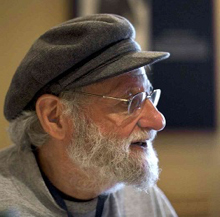 Don Norman is Professor Emeritus in the Departments of Cognitive Science and Psychology. He came back to UC San Diego to develop the Design Center, and has a rich history in academia. Learn more about Don and his varied works here: https://jnd.org/.
Don Norman is Professor Emeritus in the Departments of Cognitive Science and Psychology. He came back to UC San Diego to develop the Design Center, and has a rich history in academia. Learn more about Don and his varied works here: https://jnd.org/.
-
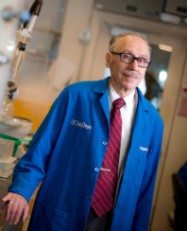
Distinguished Professor of Chemistry and Biochemistry
For fifty years, Dr. Perrin’s name has been synonymous with organic chemistry at UC San Diego. In addition to his teaching excellence at both undergraduate and graduate levels, Dr. Perrin’s passion for research makes him one of the most beloved professors on campus. He has inspired countless alumni in careers from academia to industry, and continues to teach, mentor, encourage and challenge students today.
Dr. Perrin received his Ph.D. in Chemistry at Harvard in 1963.
Dr. Perrin's research in physical-organic chemistry is concerned with molecular structure, mechanisms of organic reactions, and effects of structure on reactivity. Areas of current activity include NMR studies of hydrogen-bond symmetry, of isotope effects, of stereochemical effects on reactivity, of the anomeric effect, and of steric hindrance.
Dr. Perrin has served Revelle College as a representative of the Academic Senate, as part of its govern body, and is a mentor in the Revelle Mentorship Program.
-
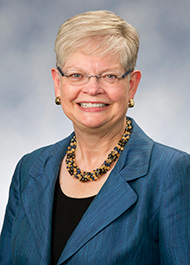
Associate Vice Chancellor for Academic Affairs/Dean of Undergraduate Education
Dr. Sawrey received her Ph.D. Ph.D. jointly from University of California San Diego and San Diego State University. Her primary research is focused on (1) how to promote meaningful learning in college science teaching, i.e., how to assist students to store more information in a memorable, readily usable fashion, and (2) how to facilitate the development of effective problem solving skills. Specifically, we investigate the role interactive, computer-based multimedia packages can play in learning and how effective they are as tools to encourage the understanding of complex scientific processes and concepts. We study the impact of a systematic, computer-based representation of a scientific topic on a student's learning and recall of that topic.
-
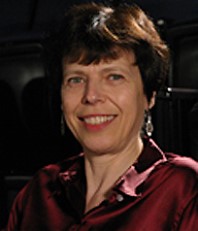
Professor of History and Theory, Department of Theatre
Dr. Smarr received her doctorate in Comparative Literature with a special focus on the Renaissance. After a year at Harvard as a Mellon Faculty Fellow, she taught for twenty years in the Comparative Literature and Italian Programs at the University of Illinois in Urbana-Champaign before moving to UCSD.
Her publications include: Italian Renaissance Tales (winner of the American Assoc. of Italian Studies Best Translation Award), Boccaccio and Fiammetta: The Narrator as Lover, Boccaccio's Eclogues, and Joining the Conversation: Renaissance Dialogues by Women, along with dozens of articles on Italian writers of the 14th-17th centuries, relations between Renaissance writing and the Latin classics, and French and Italian women's writing in the 16th century. Most recently, she has published Louise-Geneviève Gillot de Sainctonge: Dramatizing Dido, Circe, and Griselda (2010) on the first woman to write libretti for the Paris opera as well as author of entertainments for the royal court and other plays. She has edited or coedited volumes of essays on Historical Criticism and the Challenge of Theory and Italian Women and the City, and has served on the editorial boards of the journals Italian Culture, Italica and California Italian Studies.
She currently teaches seminars on Italian comedy, madness in Renaissance culture and drama, and women in European theatre before 1700. She is also part of the inter-departmental Italian Studies Program.Dr. Smarr teaches for the Revelle College Humanities Program, and she has served in a governance capacity on the Revelle College Faculty Executive Committee and is a mentor in the Revelle Mentorship Program.
-
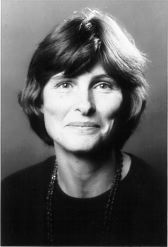
Jane Stevens
Professor of Music and Integrative Studies
Dr. Stevens earned her Ph.D., History of Music, at Yale University. She teaches music history; history of music theory, aesthetics, and criticism; humanities.
Before coming to UC San Diego, Stevens held positions at the University of Washington and Yale University.
Important research interests include music of the 18th century, the history of the concerto, and 18th- and 19th-century musical thought; current work centers on completion of a book on the keyboard concertos of Bach's sons, together with further studies relating to the perceived nature of musical content in the 18th and 19th centuries.
-
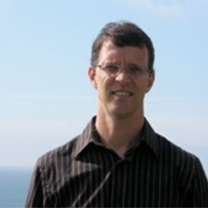
Professor of Philosophy, Department of Philosophy
Dr. Watkins has been with the UC San Diego Philosophy Department at UCSD since 2001 (after receiving his Ph.D. from Notre Dame in 1994 and then teaching at Virginia Tech and at Yale). His primary area of research is Kant (pre-Critical period, M&E, philosophy of science, and practical philosophy). He also has significant interests in early modern philosophy (Leibniz, Newton, and Hume) and German Idealism (Reinhold, Fichte, Schelling, and Hegel) as well as in the history of philosophy of science.
Dr. Watkins teaches in the Revelle College Humanities Program, and has served as a member of the Faculty Executive Committee of the college for several years.
-
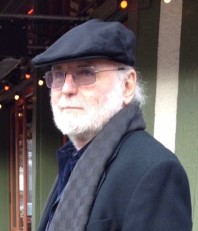
Don E. Wayne
Provost Emeritus, Revelle College (2009-13) /Chair Emeritus, Department of Literature (2005-2009)
Guggenheim Fellow
I am an alumnus of UC San Diego where I completed my PhD after having studied with faculty in Literature, Philosophy, Linguistics and Sociology. I arrived as a graduate student in 1969 and my first office on campus, shared with another student, was in Galbraith Hall. So, when I was invited to become the Provost of Revelle College in 2009, it was both an honor and a homecoming. I believe I am the first UCSD alumnus to have served as a college provost, and the first faculty member from outside the STEM fields to have served as Revelle Provost. I like to think that my appointment was consistent with the ideals of the founders, including Roger Revelle, John S. Galbraith, and Herbert York, who devised the curriculum of Revelle College, and who took a stand at that time against a notion, then gaining currency, that in the 20th century Western intellectual culture had split into "Two Cultures," one of science and technology, the other of the humanities and arts. I have always been interested in transdisciplinary research and teaching and in my early years on the faculty I worked closely with two pioneering figures in UCSD's history, Aaron Cicourel, a founder of UCSD's Cognitive Science Department, and Michael Cole, Professor of Communication and Psychology and Director of the Laboratory of Comparative Human Cognition.
My current research is a development from that earlier collaboration and involves the history of epistemology in relation to public policy. Topics range from early 17th century literary relations with the "new science," to current issues in college admissions and equity of access to higher education, a question I consider of paramount importance today. For the latter, I've drawn gratefully from my experience at UCSD as a department chair and as Revelle Provost, and especially from what I have learned from our students over the years.
-
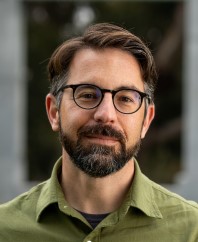
Assistant Teaching Professor, Director, Humanities Program at Revelle College
Antony Lyon received his Ph.D. in Political Science from UC San Diego. He joined the Humanities Program in 2010, becoming Director in 2022. He teaches all five courses in the Humanities sequence.
-
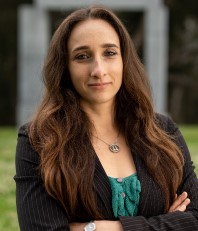
Associate Director, Humanities Program at Revelle College
Dr. Markman received her Ph.D. in Medieval History from UCLA in 2015. Before joining the Revelle College Humanities Program she taught at UCLA, Loyola Marymount University, and West Los Angeles Community College. Her primary research interests are intellectual and cultural history with an emphasis on frontier interactions in the High Middle Ages.
As a member of the Humanities Program, Dr. Markman’s mission is to empower students to become productive and engaged community members by reflecting on the human experience and considering key issues that have shaped today’s world from a variety of perspectives—history, philosophy, religion, literature, and art. In 2021, Dr. Markman received the Revelle College Outstanding Teaching Award in Humanities, Fine Arts, and Social Sciences.
-
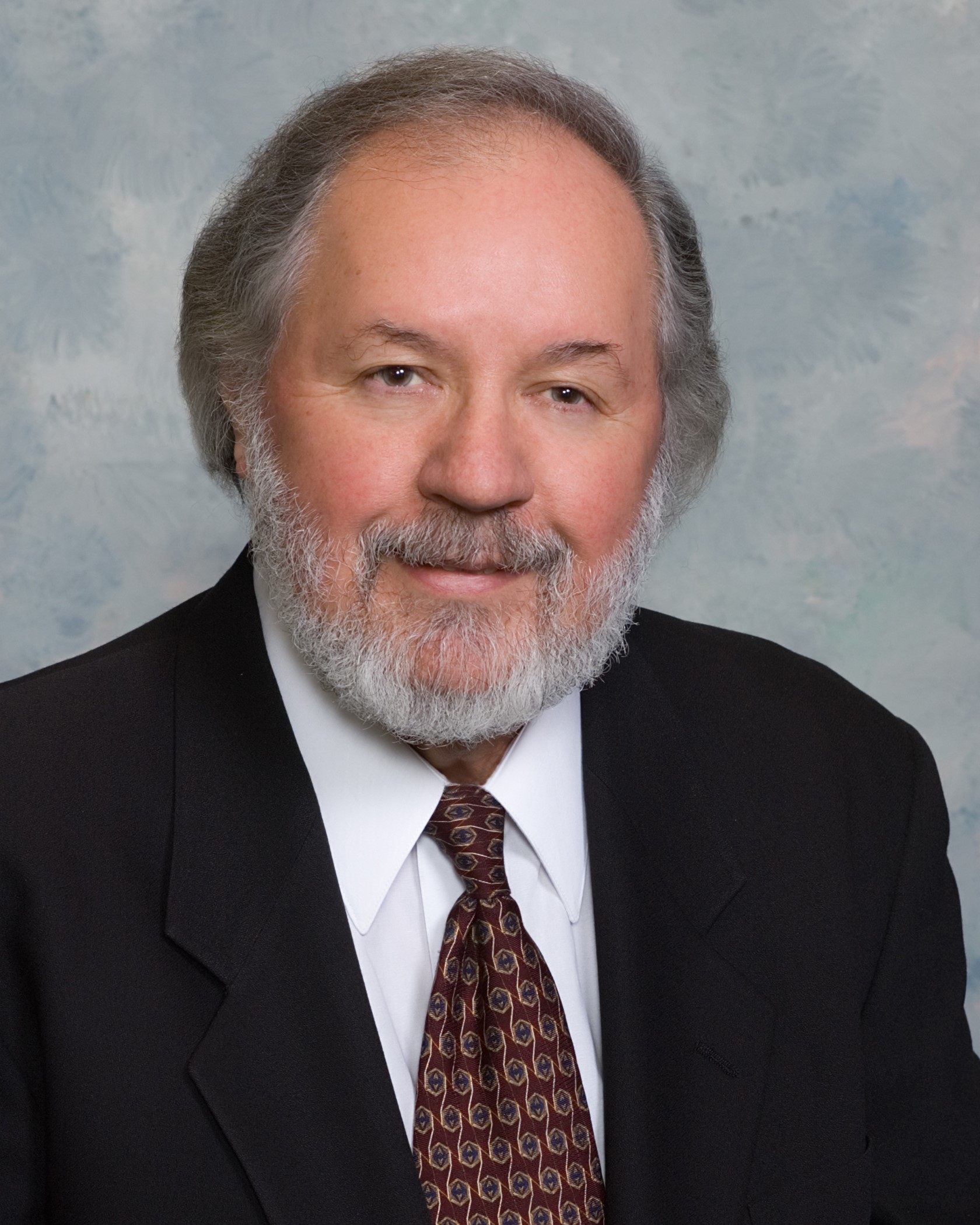
Distinguished Professor of Physics
Professor Maple is a first-generation college graduate who earned B.S. (physics) and A.B. (mathematics) degrees in 1963 from San Diego State University (SDSU) and M.S. (physics) and Ph.D. (physics) degrees in 1965 and 1969, respectively, from UC San Diego. All of his academic appointments have been in the Physics Department at UC San Diego, interspersed with visiting professorships and research positions at the University of Chile, the Instituto de Fisica Jose Balseiro, San Carlos de Bariloche, Argentina, the Kavli Institute for Theoretical Physics, UC Santa Barbara, Brookhaven National Laboratory, Los Alamos National Laboratory, and the University of Karlsruhe, Germany. He served as Vice-Chairman and Chairman of the Division of Condensed Matter Physics of the American Physical Society (APS) in 1987 and 1988, respectively, and chaired the famous “Woodstock of Physics” Session on High-Temperature Superconductivity at the APS March Meeting in New York City in 1987.
Professor Maple is a member of the National Academy of Sciences and a Fellow of the American Physical Society and the American Association for the Advancement of Science. He has received numerous awards, including Excellence in Teaching Award, Revelle College, UC San Diego (1983), John Simon Guggenheim Fellowship (1984), APS David Adler Lectureship Award (1996), Alexander v. Humboldt Research Award, Germany (1998), Frank H. Spedding Award (1999), APS James C. McGroddy Prize (2000), Bernd T. Matthias Prize (2000), Honorary Professorship, Trzebiatowski Institute for Low Temperature and Structure Research, Polish Academy of Sciences, Wroclaw, Poland (2006), and Science Lectureship Award, Chiba University, Tokyo, Japan (2010). Maple was ranked among the top 30 scientists for number of citations received for papers published in physical sciences between 1990 and 1996 (Science Watch, November/December 1997, published by ISI), and he was identified as one of the world’s most Highly Cited Researchers by ISI in 2000. He was named Distinguished Alumnus of the Year at UC San Diego in 1987 and at SDSU, College of Sciences, in 1988.
-
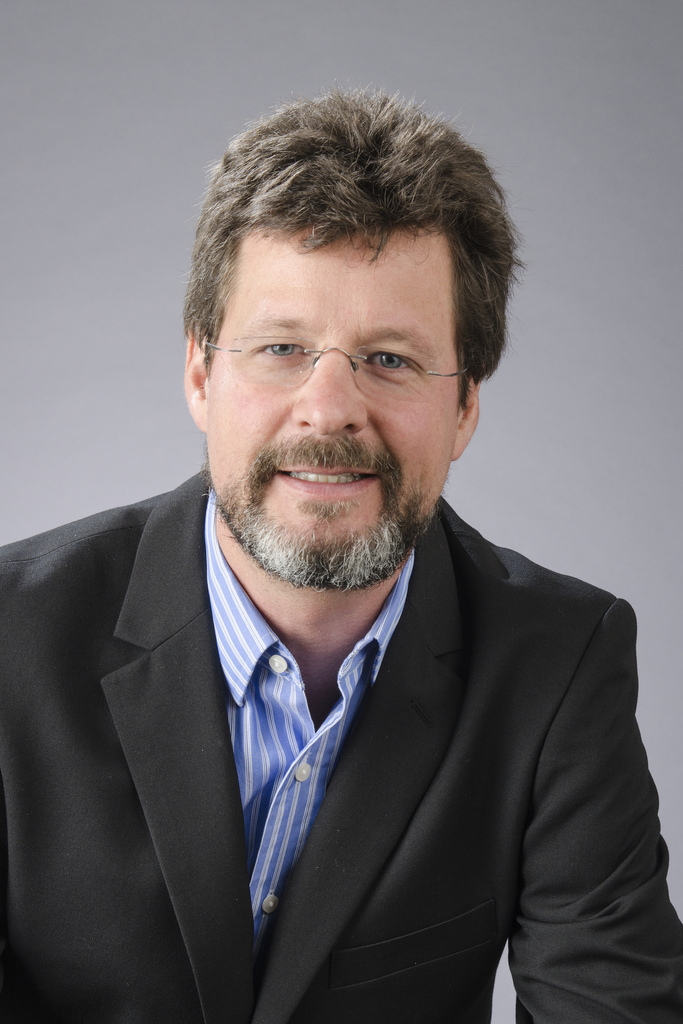
Professor and Department Chair, Economics
Marc-Andreas Muendler is a Professor in the Economics Department at the University of California, San Diego, a Research Professor at ifo Institute in Munich, Germany, a Guest Professor at the University of St. Gallen, Switzerland, and a Research Associate at the National Bureau of Economic Research in Cambridge, Massachusetts. He has published in leading economic journals on the origins of globalization and its consequences for local industries and labor markets, firm dynamics and entrepreneurship, and information economics. He has worked as a consultant to the World Trade Organization, the World Bank, and private businesses, and as a consulting researcher for the Brazilian labor ministry, the Brazilian census bureau, the German central bank, and the Federal Reserve Bank of New York. He received his Ph.D. in economics from the University of California, Berkeley in 2002 and was a Peter B. Kenen Research Fellow at Princeton University in 2008-09. Muendler's current research revolves around the local impacts of global markets.
-
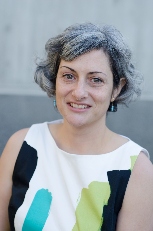
Denise Demetriou
Denise Demetriou received her PhD from Johns Hopkins University and taught for nine years at Michigan State University before joining the History Faculty at UC San Diego. She studies the history of the Mediterranean region from a wide perspective that integrates the interconnected histories of Greeks, Phoenicians, Persians, and others who lived in the region.Her most recent book, Phoenicians among Others: Why Migrants Mattered in the Ancient Mediterranean (Oxford University Press, 2023) highlights the diverse ways that migrants influenced the development of societies, shaped the policies of their home and host states, made notions of citizenship more fluid, and changed the course of local, regional, and Mediterranean histories. She is also the author of Negotiating Identity in the Ancient Mediterranean: The Archaic and Classical Greek Multiethnic Emporia (Cambridge University Press, 2012), and she has co-edited (with Amalia Avramidou) Approaching the Ancient Artifact: Representation, Narrative and Function (De Gruyter 2014). Together with Amalia Avramidou she co-led one of the summer seminars of the American School of Classical Studies in Athens, in July 2022.At UC San Diego, she teaches undergraduate and graduate courses on ancient Greek history, contributes to the Humanities Program at Revelle College, and is an affiliate faculty member in the Classical Studies Program. She served as director of UC San Diego's Center for Hellenic Studies from 2016--2020 and the Center's co-director from 2022 to 2025. -
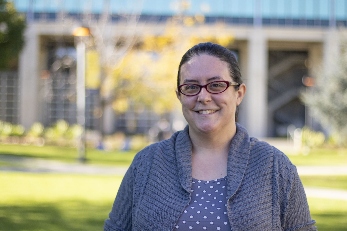
Karin Sandstrom
Prof. Karin Sandstrom received her Ph.D. in Astronomy & Astrophysics in 2009 from the University of California, Berkeley. She then moved to Heidelberg, Germany as a postdoctoral researcher in the Galaxies and Cosmology Department at the Max Planck Institute for Astronomy. In 2011, she was awarded a Marie Curie fellowship from the European Union. She then moved to Steward Observatory at the University of Arizona in 2013 to become the Bok Postdoctoral Fellow. In August 2015, Sandstrom started as an Assistant Professor at the University of California, San Diego and was promoted to Associate Professor in 2021. Prof. Sandstrom studies the gas and dust between the stars in galaxies, called the interstellar medium. She uses observations from telescopes spanning ultraviolet to radio wavelengths to study the interstellar medium and the star formation that occurs within it. -
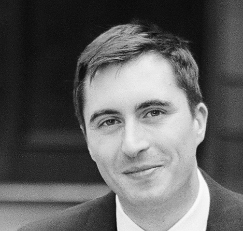
Gareth Nellis
Gareth Nellis is an assistant professor of political science. He studies intergroup relations focusing on the extent to which elections serve as instruments of inclusion or exclusion in developing democracies. One line of work examines the electoral rise of violent ethno-religious nationalism; the other aims to understand the political marginalization of internal migrants. -
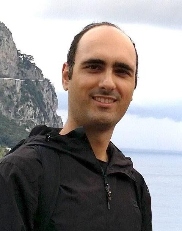
Marko Lubarda
Marko Lubarda is an Assistant Teaching Professor in the Jacobs School of Engineering, Department of Mechanical and Aerospace Engineering. He earned his Ph.D. in Materials Science and Engineering from UC San Diego in 2012 and is a proud Revelle College alumnus, having graduated with a B.S. in Physics in 2006. Dr. Lubarda joined the MAE Department in 2020, where he has since dedicated himself to engineering pedagogy and enriching students' learning experiences. His teaching and research activities are in the areas of mechanics, materials science, computational methods, engineering mathematics, and magnetic nanotechnologies. Through curriculum design, teaching innovations, and support of undergraduate student research, Dr. Lubarda aims to foster a dynamic, engaging, and equitable educational environment for all students. -
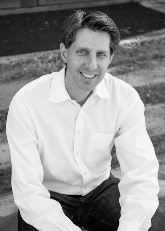
Edward Watts
Professor Edward Watts was born in Princeton, New Jersey, received a BA in Classics at Brown University, and received his PhD in History from Yale University in 2002. His research interests center on the intellectual, political, and religious history of the Roman Empire and Byzantine Empire. He is the author of six books and the editor of five more, including Mortal Republic: How Rome Fell into Tyranny (Basic Books, 2018), a narrative history of the last three centuries of the Roman Republic. His most recent book is The Eternal Decline and Fall of Rome: The History of a Dangerous Idea (Oxford University Press, 2021), which traces the 2200 -year history of claims about Roman decline and the victims they created. He is currently working on a history of the Roman state from the 8th century BC through 1453 AD. His work has also been featured in Time, Vox, Smithsonian, the Economist, the Wall Street Journal, and the New York Times. Before coming to UCSD in 2012, Professor Watts taught for ten years at Indiana University. He teaches courses on Byzantine History, Roman History, Late Antique Christianity, Roman numismatics, and the history of the Medieval Mediterranean. -
Robert "Skip" Pomeroy
Robert “Skip” Pomeroy is a teaching professor at the UC San Diego Department of Chemistry and Biochemistry, specializing in analytical chemistry. He received his BA in chemistry from UC San Diego, MS from the California State Polytechnical University, Pomona, and Ph.D. from the University of Arizona. He completed a postdoctoral appointment at Scripps Institution of Oceanography. He co-founded Algenesis Materials and the spin-offs Blueview Footwear and Soleic Materials.
Skip teaches analytical chemistry, chemical instrumentation, and soil and water environmental chemistry. Combining his love of analytical chemistry and the impact chemistry has on the environment, for better or worse, he brings his view of the world to K-12 students through outreach in the community and undergraduates through honors seminars.
Research Interests: Collection, characterization, and quantification of Volatile Organic Compounds, VOCs; Using VOCs to monitor the health of production Algae Ponds; Renewable, Sustainable Biodegradable Polyester Polyurethanes; and building a circular economy for polyester polyurethanes.
-
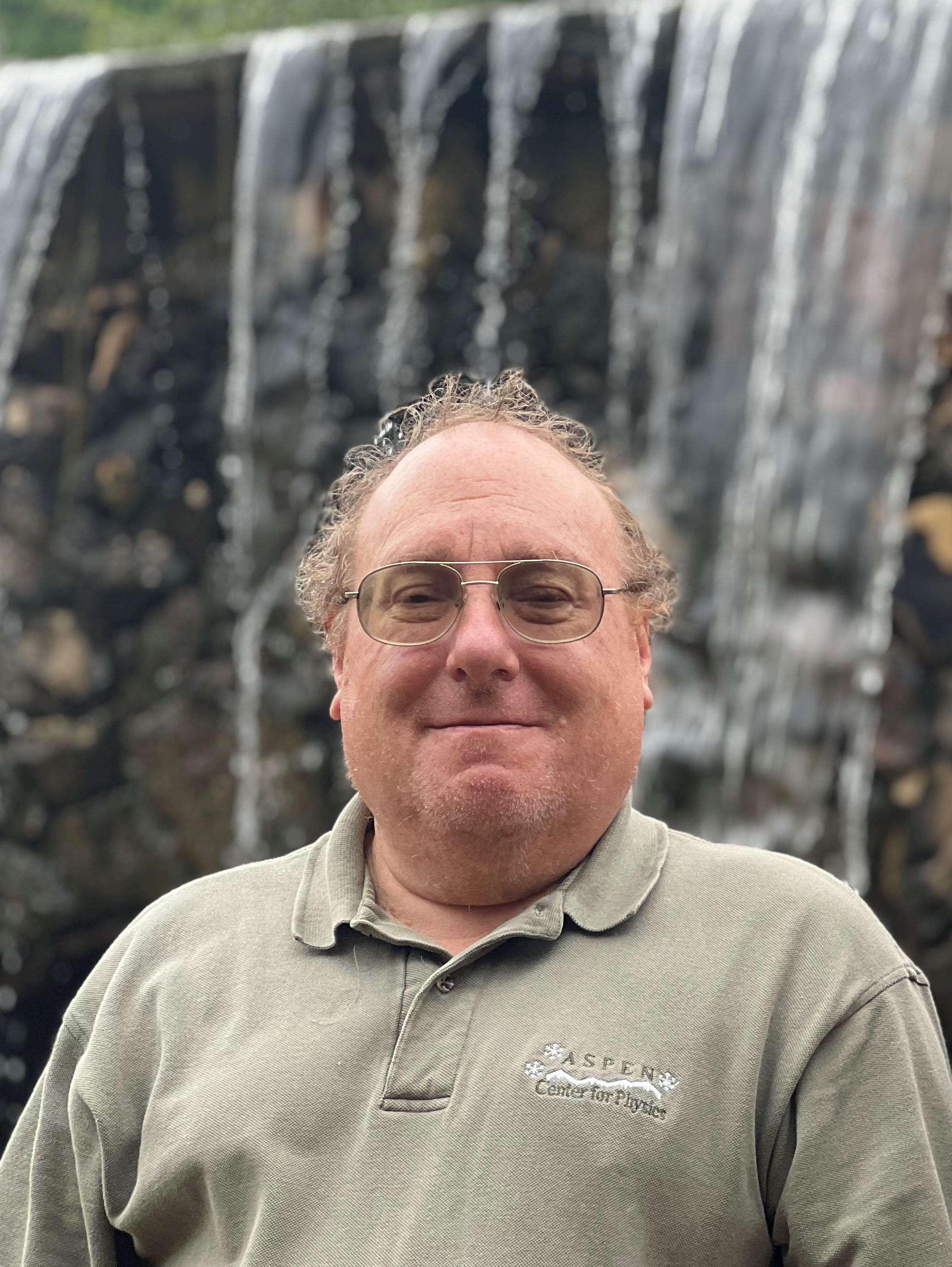
Daniel Arovas
Daniel Arovas received his PhD from UC Santa Barbara in 1986 and went on to do postdoctoral work at the University of Chicago. He joined the faculty of UC San Diego in 1988.
A condensed matter theorist, he has worked on a variety of topics, including quantum Hall effect, fractional statistics, quantum magnetism, quantum dynamics and tunneling of vortices and skyrmions, topology in condensed matter, and most recently open quantum systems.
He is a Fellow of the American Physical Society and was the inaugural recipient (2017) of the Dresden Physics Prize. He also served in the chair line of the American Physical Society's Division of Condensed Matter Physics and as Program Director for the ill-fated 2020 APS March Meeting, and is happy to tell the story of how the entire meeting came to be cancelled the day before it was to start.
-

In Memoriam
Water Munk ~ 1917 - 2019
Dr. Munk was professor of geophysics in the Cecil H. and Ida M. Green Institute of Geophysics and Planetary Physics at Scripps Institution of Oceanography at UC San Diego. His research included physical oceanography and geophysics leading to the understanding of ocean currents and circulation, tides, wave propagation in solid and fluid bodies, and the rotation of the Earth. He pioneered the use of high-speed computers for analyzing geophysical data.
He studied physics at Columbia University. He attended the California Institute of Technology and received a bachelor’s degree in physics and a master’s degree in geophysics. He attended Scripps Institution of Oceanography and received a Ph.D. in oceanography from the University of California.
Revelle College Faculty Fellows
Revelle College honor individuals who have made exceptional and sustained contributions to Revelle College, in particular its students, in the form of education, service, and/or research. Candidates who meet these high standards will be of two types: Fellows will be Revelle Faculty or Revelle Emeritus Faculty while Honorary Fellows will be members of the UCSD community more broadly.
In addition to honoring those who have already greatly contributed to the mission of Revelle College, we hope this program will also
- foster greater interaction between Revelle faculty and the student body (which can help overcome some of the depersonalization that can occur in large institutions)
- encourage creative ways to further education in and outside traditional academic settings
- help produce a stronger sense of community between all members of Revelle College
